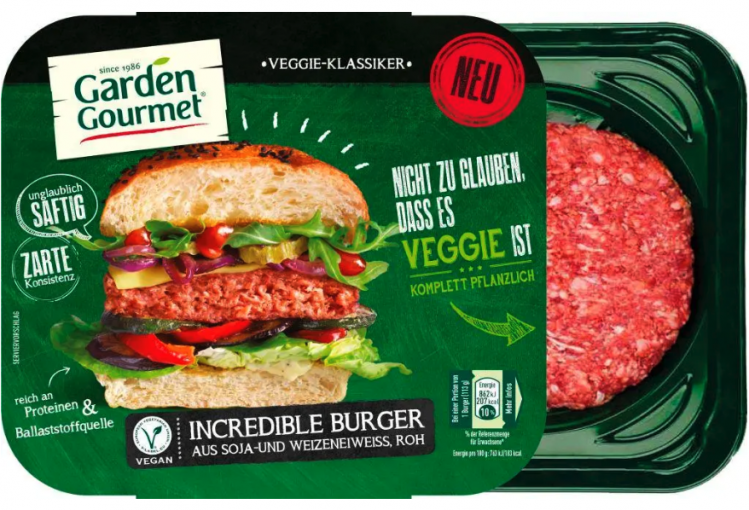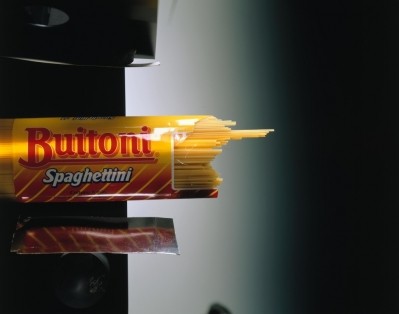‘Be sustainable, tasty and healthy for competitive advantage’: Nestlé EMENA chief sees zone moving to expansion mode

Nestlé’s Zone EMENA has undergone a structural shake-up with businesses that were previously globally or locally managed being moved to a regional structure. In 2017, 45% of EMENA sales were globally managed and 42% were locally managed. Today, no sales are locally managed and 30% are globally managed – leaving 70% of sales which are managed at a regional level.
This regional focus has benefited the company’s brands by allowing the group to focus growth investment on areas that pay local dividends while also leveraging its scale to deliver cost savings, according to regional CEO Marco Settembri.
“In [infant] nutrition, for instance, the category is not growing overall in the Zone because the birth rate is stable or red. But we are growing share thanks to portfolio management and innovation.”
Previously, as a globally managed business unit, management priorities could have been elsewhere, focusing on high growth markets like China, Settembri observed. But today, the European nutrition business has been able to deliver market-beating growth by focusing on regional innovation such as the launch of Little Steps in the UK under the SMA brand.
This approach has created a “virtuous circle”, driving profitable growth through investment and efficiencies. “We are increasing efficiency and reducing costs in all elements of the chain,” Settembri told the Deutsche Bank Global Consumer Conference in Paris this morning.
Nestlé has lowered distribution costs and fixed overheads. “Through this value extraction we are investing in growth,” the regional chief said, pointing to market share gains across 60% of the portfolio.
Zone EMENA generates around CHF19bn in sales, 21% of the group total
Underlying trading operating profit stands at 19%
Innovation and premiumisation
Investing in growth includes a CHF24m in additional consumer marketing spend in 2018 and an increased focus on innovation.
“In every category we are disrupting or innovating,” Settembri claimed.
Calling out growth levers that he expects to help build Nestlé’s momentum, Settembri pointed to the Starbucks retail licensing deal, which has just started to roll out, and “strong” innovation in plant-based protein with the launch of the Incredible Burger.
These efforts have had a positive impact on Nestlé’s product mix, moving consumers to higher margin premium products. As a result, Nestlé has been able to strengthen its Zone profit margin from around 14-15% seen in recent years to 19% while keeping top line growth at around 2%. “This is coming from innovation, premiumisation, real internal growth [RIG]. Mix has been a huge factor.”
In this way, product mix can be viewed as an alternative lever to pricing, which is stripped out in Nestlé’s RIG figure but included in organic growth calculations. “You need to have the mindset that you cannot increase prices. You are obliged to work with real internal growth coming from mix,” Settembri explained.
Moving to expansion: ‘Sustainability by design’
Having completed the “transformative” restructuring initiative, the company is now moving to an expansion phase in Europe.
“The first chapter of that is sustainability by design,” Settembri said.
“Be sustainable on top of being tasty healthy to create a competitive advantage.”
Nestlé’s plant-based push with its Garden Gourmet brand and Incredible Burger is one example of how the company is innovating around sustainabilility.
“Everyone wants to have better food. Which means tastier and healthier. What the consumer is looking for is something different but [that allows them to] keep eating what they usually eat. Plant protein and meat lookalikes are growing quite substantially,” he reflected.
There is little cannibalisation between Nestlé’s existing sales (the company recently decided to sell its Herta meat products business) and indeed Settembri suggested a plant-based offering “complements perfectly” its meal solutions business, which includes the Maggi brand.
Tech and the evolving consumer
How consumers are shopping, what they are eating and how they are connecting with brands is “changing and evolving”. Through a consumer-centric approach, Nestlé believes it can put these developments at the centre of its innovation moving forward.
The blurring of channel lines and Nestlé’s ability to “follow the shopper journey” will be “key” for the company’s future development Settembri predicted.
New technologies will also have a major impact on how Nestlé operates in Europe in the future and the company is investing heavily in the digitalisation and automation of its production processes.
“We are putting a lot of money into becoming automated because of the issue of labour costs and scarcity in many places in EU. Digital by design… is automation in the way we operate, in the marketplace, engaging with stakeholders and our teams.”
Beyond this, new technologies are ultimately likely to revolutionise the consumer offer, enabling Nestlé to balance the scale of mass production on the one-hand with the complexity of delivering a personalised offering on the other.
“I strongly believe in mastering complexity,” the Italian executive concluded.
“The core of the factories must produce standardised mass products at a low cost.” But in the future Nestlé will be able to create a “chassis” where what consumers see at the end will be personal but the process will be standardised. Settembri expects developments in 3D printing will allow to leverage its assets in “new ways” to create personalised products while also leveraging the economies of scale.
Through cost management and re-investment, Nestlé is aligning itself with the consumer trends of the future. “We are transforming in the zone EMENA quietly but quite radically. We are winning market share by anticipating the new consumer trends.”

















